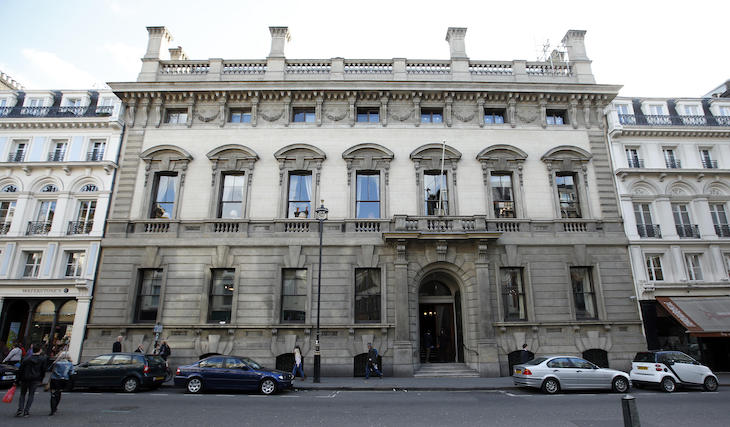The Garrick Club affair has taken a new and slightly worrying twist, this time courtesy of – of all bodies – the Bar Council. Hot on the heels of calls for judges to resign en masse from the club because it remains single-sex, the Council now apparently wants to go even further. It is hinting that it may forbid any member of the Bar from being a member. Its menacing words bear quoting in full:
For now, it is a matter for individuals to determine whether or not membership of an institution, such as the Garrick Club, is compatible with the views they espouse in their professional lives, but this may change. As a profession it is vitally important that we retain the trust and confidence of the public.
The Bar – which is armed with state power to control entry to a vital profession – is seriously suggesting that it could say what its members are allowed to do with their social lives.
This needs to worry anyone, not just barristers. For one thing, there is the intrusiveness of the Bar Council’s claim. So long as the Garrick remains a lawful club, and the elected government has not chosen to force a rule change on it, it is very hard to see what business it is of the Bar Council, or any other professional body, to issue edicts.
How far could this intervention go? Is membership of any single-sex organisations, from the Freemasons to the University Women’s Club in Mayfair, now potentially up for grabs on the basis that no barrister, whatever his private views, can be allowed publicly to condone the existence of single-sex spaces?
For that matter, why limit the ban to such places? In advancing its proposals the Bar Council suggests that ‘closed doors and exclusionary spaces’ like the Garrick create ‘potential for unfair advantage’. Very well. But then what about upmarket golf clubs, where a great deal of ear-bending goes on? More to the point, what about clubs like the Athenaeum, which very many lawyers and senior judges are members of, and which does accept women, including some high-profile and articulate female judges? It may not be boys-only, but it sure is an exclusionary space – probably rather more exclusionary than the Garrick, in that by all accounts it is rather more difficult to get into. On the Bar Council’s argument, shouldn’t organisations like these equally be off-limits?
Unfortunately there may well be more behind this than meets the eye. There is good reason to suspect an ongoing capture of the Bar by progressive political orthodoxy. The Garrick kerfuffle is not unconnected with a grander background plan announced last week by the Standards Board to consider rejigging the rules on equality. At present these say simply: ‘You must not discriminate unlawfully against any person.’ Fair enough. But the Council, it seems, thinks this is too tame. Already big on Equality, Diversity and Inclusion, running regular consciousness-raising introductory and advanced sessions on equality on diversity, it now plans to consult on a new rule positively requiring all barristers to ‘advance equality, diversity, and inclusion’.
This also should worry us. It is one thing to require self-employed lawyers (which barristers are) to obey discrimination law. But requiring them actually to promote EDI, which in many of its guises is a highly political idea, gets very close to subjecting barristers to a test of their progressive political ideology as a condition of the right to practise. If this is also to be tied to controls on what organisations lawyers can join even outside their professional lives, it makes it even more disconcerting.
Previously, barristers were celebrated for their independence. Today, the Bar seems to be suggesting that it will only tolerate people if they support the political fashion. I think I know what type of barrister I would trust.







Comments